Back to School Woes
Alfredo G. Evangelista
Assistant Editor
A year ago, education was all about parents, teachers and students adjusting to a virtual classroom. Quite a problem on the fly then but the 2021 school year has arrived with both continuing and its own set of challenges. A quick review of the last month and a half highlights classrooms cannot be and are not insulated from outside forces and events.
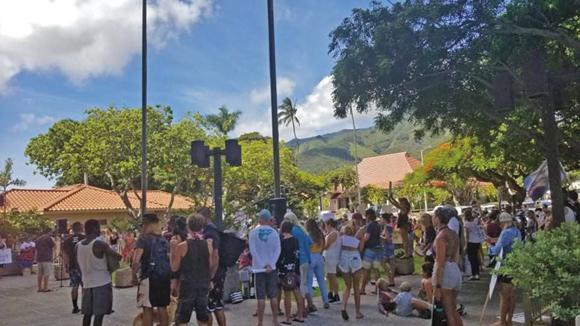
Photo: Dulce Karen Butay
Right before the school year began, the Board of Education (BOE) changed Superintendents after deciding against renewing Christina Kishimoto’s contract. Instead, the BOE tapped Keith Hayashi, the highly regarded former principal at Waipahū High School on O‘ahu, as Interim Superintendent, effective August 1—just a couple of days before the first school bell rang.
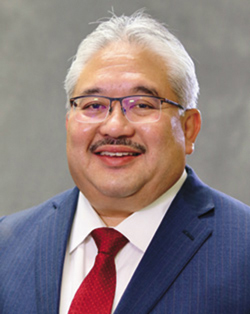
Concurrently, the COVID delta variant was detected in Hawai‘i and began to spread. Infection numbers were increasing yet the State Department of Education (DOE) kept insisting there would be in-person classes only in Maui’s public schools. Rather than getting the opportunity to build on the innovated and novel programs he started at Waipahū (including early college and STEM academies), Hayashi has to navigate a difficult return to in-person instruction “planned” by his now departed predecessor and her people.
Not everyone thought the DOE should re-open campuses.
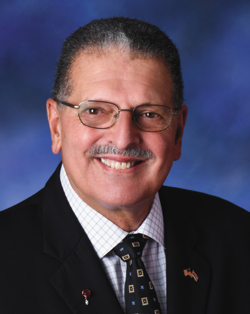
On August 1, Mayor Michael Victorino requested a two-week delay to the August 3 start of instruction, saying “Even though our vaccination rate in Hawai‘i is fairly good compared to other states, the Neighbor Islands have limited hospitals and critical care facilities. Our healthcare facilities are already being challenged by the recent surge of infections, so I believe it is wiser to err on the side of caution.” The Mayor further argued, “Distance learning is not new for Hawai‘i’s students and teachers, and while it’s not ideal, it’s preferable to a potential surge in Delta pediatric cases. We should pause for a few weeks until classroom instruction begins so we can have a better indication of how this variant will impact our medical facilities.” He also urged, “In the meantime, I urge the unvaccinated to get vaccinated as soon as possible, for their own health and for the protection of our keiki.”
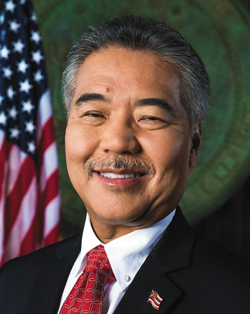
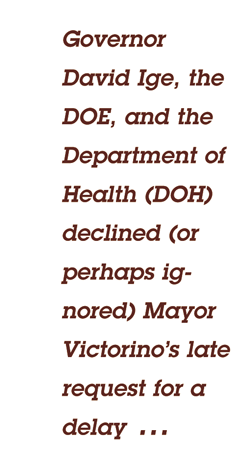
Governor David Ige, the DOE, and the Department of Health (DOH) declined (or perhaps ignored) Mayor Victorino’s late request for a delay and school began as scheduled on August 3. On Maui, 13,383 regular students and 1,576 special education students matriculated at the twenty schools in the Baldwin-Kekaulike-Maui complex. Another 4,342 regular students and 513 special education students began school at the eleven schools in the Hāna-Lahainaluna-Lāna‘i-Molokai complex.
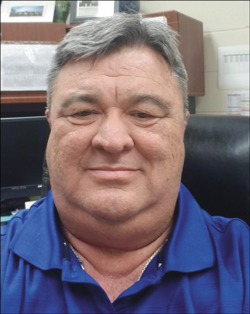
At Maui High School, the largest high school on Maui, 603 are freshmen, 507 are sophomores, 475 are juniors and 454 are seniors, according to principal Jamie Yap. Of the total 2,039 students, 48 percent are identified as being of Filipino ancestry.
After no competitive athletics at Maui public schools during the pandemic, the Maui Interscholastic League (MIL) scheduled a full slate of Fall games and events. On August 4, however, the DOE announced athletes needed to be vaccinated to play sports. “We opened the new school year this week with in-person learning and our highest priority is to ensure all students can continue to attend school safely,” the newly installed interim Superintendent proclaimed.
“This decision was not made lightly because we know the important role athletics play in a well-rounded education, but we cannot jeopardize the health and safety of our students and communities,” said Hayashi. “We saw over the weekend the impact that just one potential case can have on sports teams, students and families. The alternative is canceling the season outright, which we don’t want to have to do; so we are implementing this layered plan that prioritizes vaccinations as the best way to protect against and reduce the risk of exposure to COVID-19.”
Athletes were given a deadline of September 24 to comply, thus delaying athletics—including full contact practices and preseason football tilts.
In response, on Maui, hundreds of parents rallied in front of the State and County buildings to protest the requirement, chanting for Mayor Victorino, Governor Ige and local health officials to address their concerns. (Even the football coach at perennial Division II state title contender Lahainaluna resigned in protest.) Activities of various school organizations and extracurricular activities were also placed on hold.
Yap, who in addition to his full-time post as Maui High principal leads the MIL, sympathizes with the students. “For our students it has been a challenge without having activities, marching band and athletics. They don’t have the same high school experience as our students pre-COVID. Again, our kids have been outstanding doing the best they can.”
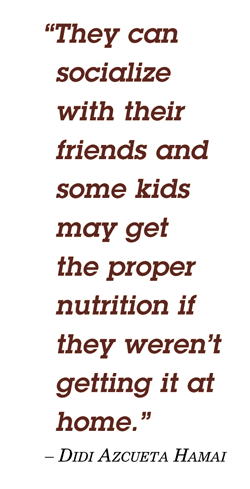
“I think the kids going back to school is the best thing after the pandemic because it allows them to get the education they need after not being in school for over a year,” said Didi Azcueta Hamai, whose daughter is a seventh grader at ‘Īao School. “They can socialize with their friends and some kids may get the proper nutrition if they weren’t getting it at home. I think they should mandate vaccines. It’s to protect not only yourself but their family as well.”
On August 5, Governor Ige issued an emergency proclamation requiring all state employees to be vaccinated or tested weekly. “The highly contagious Delta variant creates a big risk of infection, especially for members of our community who are not vaccinated. With spiking COVID-19 case numbers, we have to take measures now to prevent an unmanageable strain on our healthcare system. This new vaccination and testing policy for State and county workers will help protect the health, safety and welfare of the people of Hawai‘i,” said Ige. More recently, Gov. David Ige extended the vaccination requirement to all state contractors and any person wanting to enter various state facilities, including public libraries and any state offices still open to serving residents.
As the Delta variant continued to wreak havoc, it became clear that perhaps Mayor Victorino’s request was a reasonable one. (Between August 14 and August 19, the DOE reported there were fifty-seven cases, with forty-four in the Baldwin-Kekaulike Maui complex area and thirteen cases in the Hāna-Lahainaluna-Lāna‘i-Molo-kai complex area.)
Leizl Tabon, who has twins in the 7th grade at Maui Waena and a daughter in the 4th grade at Lihikai Elementary, expressed her concerns: “Having kids attending school in person has been great for my children but it has not been without its challenges. All my kids have been in close contact at some point, which resulted in a ten day isolation period. This can be very inconvenient and the idea of having been exposed to the virus can be a little frightening for them. All that said, being able to socialize with their friends is beneficial for their well-being and we’re hopeful that in person learning will continue for the remainder of the school year.”
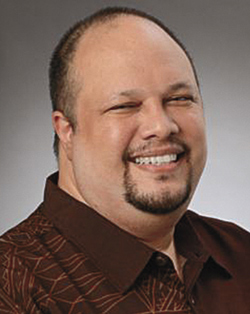
On August 18, the Hawai‘i State Teachers Association (HSTA), the union representing teachers, held a news conference outlining its demands to the State. Osa Tui, Jr., who became HSTA president on July 5, described the state’s actions limiting indoor social gatherings to ten or less as hypocritical because the State allows classes between 20 and 40 students.
On September 3, HSTA reported filing “two class grievances over unsafe working conditions during the pandemic and the state’s directive that unvaccinated education employees must be tested for COVID-19 weekly.” Recently, the DOE reported that as of August 31, 89 percent of its employees were fully or partially vaccinated.
Yap believes the biggest challenge for teachers is dealing with the state mandated rules for testing. “They have done an outstanding job working with students,” he said.
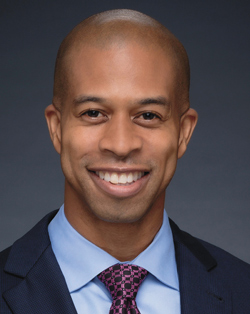
Kahului State Representative Justin Woodson, Chair of the House Education Committee, held an Informational Briefing on September 8 with Superintendent Hayashi and others from the DOE hierarchy including several Deputy Superintendents. The hearing lasted more than two hours.
“I still have concerns about the DOE’s reopening because of COVID but we are also continuing to work with the Department to mitigate the community’s concerns,” said Woodson, who notes the key issues brought forth by parents and teachers are proper social distancing and masking. Woodson said it’s also difficult to get testing on Maui and the cost is prohibitive for families. Woodson is pushing the DOE to provide free testing at schools for students and staff.
Another problem caused by the pandemic is the lack of bus drivers. Statewide, approximately 650 drivers are needed and the DOE reported a shortage of about one hundred. On Maui, the result was the consolidation of bus routes for the different schools while new bus drivers (who need a CDL license) were hired. For example, routes GR08A, GR09A, GR09B, GR10A, GR11A, GR12A and GR14A for Maui High School were consolidated.
Yap also notes the lack of substitute instructors is another problem. “In my opinion,” he says, “the biggest challenge for administrators have been dealing with COVID contact tracing and covering classes daily because of no subs available.”
Mayor Victorino’s recent orders, effective September 15 (which will be reviewed on October 15), prohibits spectators at indoor and outdoor sport events: “Players/participants and staff/coaches only. No spectators are allowed.” (This probably also means no band or cheerleaders at football games and there is some discussion whether this will apply only to County-managed facilities such as the War Memorial Stadium.)
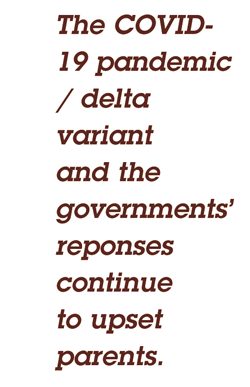
The COVID-19 pandemic/delta variant and the governments’ responses continue to upset parents. The armchair quarter backing is constant, with complaints galore posted on social media. Other parents, however, are understanding and tolerant of the new world.
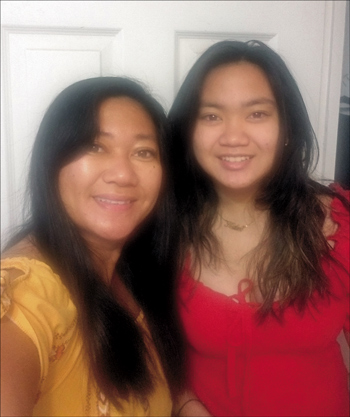
“We cannot be scared all the time. We have to take risk as some point. The school has a plan when kids are going back to school. It’s not perfect but at least it’s a start,” said Dulce Karen Butay whose daughter is now a senior at Maui High School. “The kids need to go back to school. Hybrid learning or distance learning is not working out. I am glad they can go back to school and interact with their classmates and friends. We can educate and emphasize the importance of personal hygiene, social distancing and taking care of themselves. Kids have been vaccinated since birth. What is another vaccine for them if it’s going to protect them?”
But as Public Health officials have been constantly saying—both locally and nationally—as information and data changes, so will the proper responses and guidance.
“I believe no one could have been adequately prepared for COVID and returning to school,” says Yap. “We believe we had a plan prior to the delta variant. It’s the variant that has made returning to school a bigger challenge. Even as we move forward there is no best plan as changes happen daily. I think we prepared as best we could have at the time and we made it a point to focus on the social, emotional aspect of each student so they are prepared for learning. As we speak, we are focusing on our return to school after fall break to have conversations about returning to school in all classes with students before we resume instruction.”
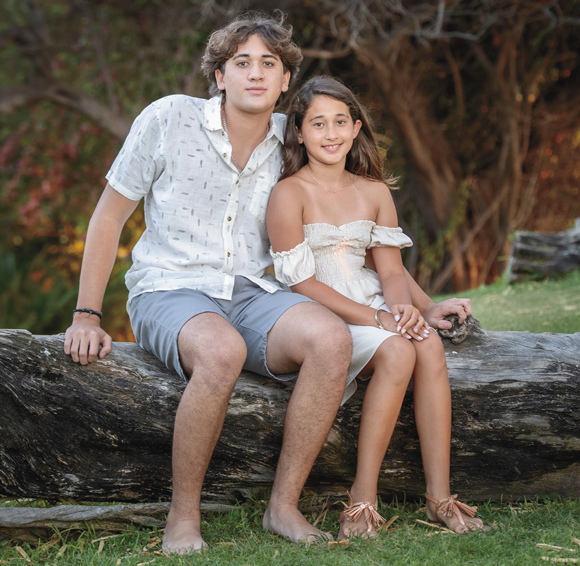
Parents with children in private school also understand the importance of staying open. “There is so much negativity our kids are being exposed to everyday,” says Elsa Agdinaoay Segal whose son attends Seabury while her daughter attends St. Anthony. “Staying positive and healthy is really important right now. We are grateful Hawai‘i students are able to return to the classroom to learn. We hope everyone practices care for each other and the community, so schools are able to stay open.”
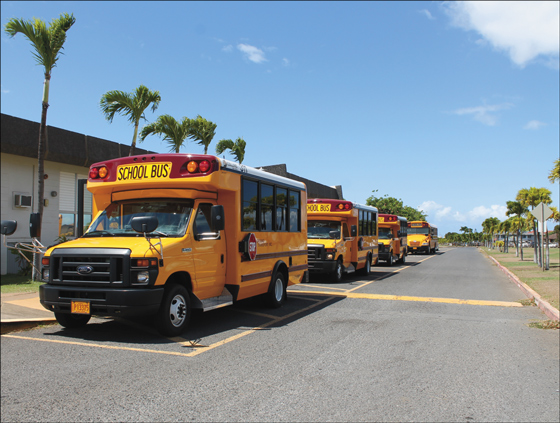
Photo: Stacy Woodson
Yap hears the chatter about closing schools and credits the efforts of the staff and students. “It is my belief we cannot shut down schools. We need to make every effort to stay open. This is in the best interest of our community. We have been very fortunate there has been no transmission of COVID in our school as we document all our cases. This has been a challenging year and we need to stay the course as we work through this pandemic. I really appreciate the staff and students here at Maui High who have come together to keep our school open.”
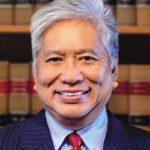 Alfredo G. Evangelista is a graduate of Maui High School (1976), the University of Southern California (1980), and the University of California at Los Angeles School of Law (1983). He is a sole practitioner at Law Offices of Alfredo Evangelista, A Limited Liability Law Company, concentrating in estate planning, business start-up and consultation, nonprofit corporations, and litigation. He has been practicing law for 37 years (since 1983) and returned home in 2010 to be with his family and to marry his high school sweetheart, the former Basilia Tumacder Idica.
Alfredo G. Evangelista is a graduate of Maui High School (1976), the University of Southern California (1980), and the University of California at Los Angeles School of Law (1983). He is a sole practitioner at Law Offices of Alfredo Evangelista, A Limited Liability Law Company, concentrating in estate planning, business start-up and consultation, nonprofit corporations, and litigation. He has been practicing law for 37 years (since 1983) and returned home in 2010 to be with his family and to marry his high school sweetheart, the former Basilia Tumacder Idica.
